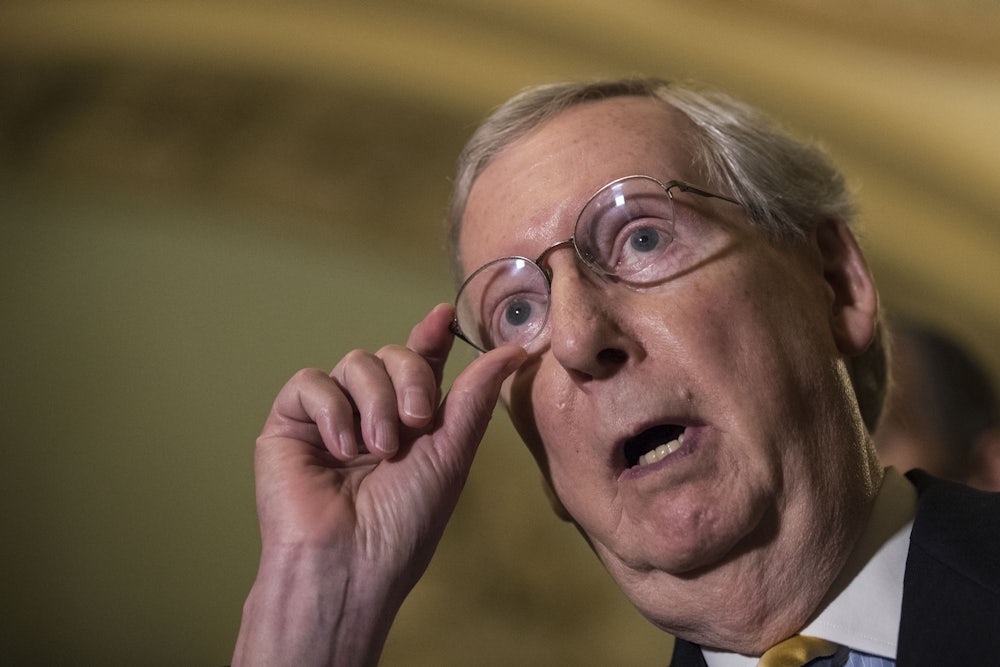On the campaign trail, Donald Trump promised “insurance for everybody” and pledged that he, unlike his Republican opponents, wouldn’t cut Medicaid, Medicare, or Social Security. Breaking from GOP orthodoxy on social services played a huge role in winning the presidency, but Republican donors and their allies in the Capitol are aching for a full repeal of Obamacare. Meanwhile, Republicans who represent states that expanded Medicaid—or who are vulnerable in 2018—want something in between Obamacare and full repeal. “It’s sad, in a way,” Rand Paul told The Washington Post on Wednesday. “We control all three branches and yet we’re not interested or able to do what we’ve pledged. People are too focused on getting more federal subsidies and other things, not on the pledge itself.”
Paul, who is among the likeliest no votes in the Senate, gets at the problem neatly. In his view, Republicans have been promising a full repeal of Obamacare for the last seven years, so that’s exactly what they should do now that they have the means to do it. But this is a very pat way of looking at what Republicans actually promised, and what their mandate on health care reform is in the first place.
Over the same seven years, Republicans also promised, in deceptive and vague terms, that they would replace Obamacare with something much better—something that would both lower costs and expand coverage. Paul isn’t wrong that, in the simplest terms possible, the GOP’s single-most important promise over the last four election cycles has been a repeal of Obamacare. But it also leaves quite a bit out, namely that repeal was only part of what they promised and that it was arguably the least important part. Trump’s message on health care was to make it better.
The problem that Mitch McConnell is running into—which is not much different than the one that Paul Ryan ran into when the AHCA failed to pass the House—is that these factions are irreconcilable. You can’t split the difference, philosophically speaking, between someone who wants a full repeal of Obamacare and someone who wants to preserve the Medicaid expansion. All you can do is to throw money at people in the hopes that tens of billions of dollars to fight opioid addiction can paper over seemingly intractable divisions.
The fact that McConnell has decided to give this bill another two weeks (at least) of life suggests that he believes that this is possible. If he thought the Senate bill was dead, there’s no reason to believe he wouldn’t just let it die in a floor vote this week. And no one in contemporary politics is better at this than McConnell, which is something that should terrify Democrats. But the problem is that the pledges Republicans have made over the last seven years aren’t as simple as Paul makes them out to be—and right now the bill they’re pushing contradicts most of them.
